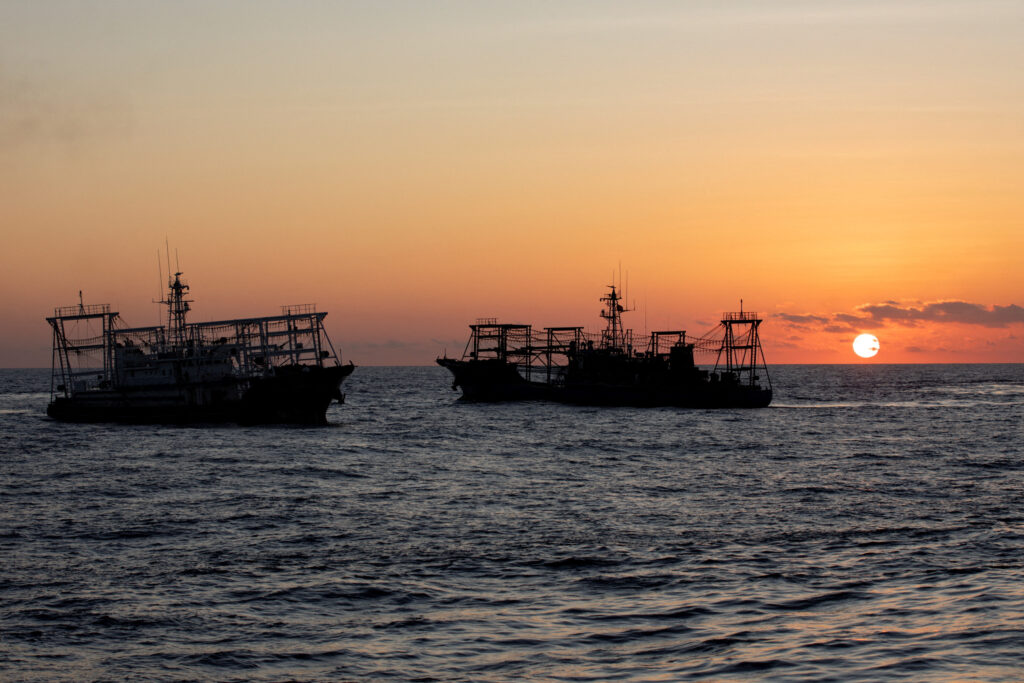As the Philippines faces Chinese transgressions against its mission to resupply soldiers stationed in the Second Thomas Shoal, statements of support and concern have come from countries including Japan, the United States, Australia, South Korea and Sweden. But the Association of Southeast Asian Nations (ASEAN), has been conspicuously silent.
This silence is paradoxical. For one, China has violated ASEAN’s Treaty of Amity and Cooperation in Southeast Asia (TAC), which calls for ‘mutual respect for the independence, sovereignty, equality, territorial integrity and national identity of all nations’. China has also violated the commitment enshrined in the TAC to resolve and manage international disputes peacefully.
But it is important to be careful when using the word ‘dispute’, since it implies that China’s claims to the shoal are on equal footing with the Philippines’, which is not the case. Philippines President Ferdinand Marcos Jr stated: ‘We have no conflicting claims with China. What we have is China making claims on our territory’.
ASEAN leaders frequently reference the 2002 Declaration on the Conduct of Parties in the South China Sea and the still-negotiated Code of Conduct in the South China Sea when confronted with China’s maritime assertiveness. But it would be wrong to rely only on the Code of Conduct. For one, the negotiation has been ongoing for over two decades and is not yet completed, despite efforts to speed up the negotiation process. Even when it has been agreed to and finalised, invoking the Code of Conduct should not be ASEAN’s only response to China’s transgressions given the difficulty of enforcing international law in the face of great power transgressions.
ASEAN’s silence and inaction on the Second Thomas Shoal will significantly harm its credibility in managing regional security issues, especially those involving a great power. As this latest round of incidents illustrates, ASEAN is silent when one of its members is threatened by a superpower. This silence could send a message to all major states, including the United States, that their major power status shields them from ASEAN criticism.
While major powers regularly state their commitments to upholding ASEAN centrality, some of their actions signify that they are willing to ignore or bypass the institution to achieve their parochial interests. ASEAN in response is ‘too soft’ in confronting the great powers, according to Indonesia’s former deputy foreign minister Dino Patti Djalal.
This apparent passiveness does not apply only to China. The AUKUS alliance has the potential to undermine ASEAN’s interests by creating a parallel security mechanism in the region. Of course, ASEAN member states share different opinions about AUKUS, and Australia, the United Kingdom and the United States are seemingly more willing to work with ASEAN decisions regarding AUKUS’ role in Southeast Asia. Still, ASEAN’s near-total silence about the new partnership reflects a habit of not standing up when its interests are undermined.
China has also been working to leverage its interests in the region. In July 2022, shortly after China launched its ‘Global Security Initiative’, it invited Cambodia, Laos, Myanmar, Vietnam and Thailand to join its ‘pilot zone.’ If realised, it could increase China’s influence and leverage over Cambodia and Laos and weaken its ability to deal with South China Sea disputes.
To prevent becoming irrelevant, ASEAN must publicly support the Philippines and implicitly criticise China. While it is true that ASEAN has never specifically addressed the concerns of a claimant on ASEAN declarations, such actions are not enough in dealing with great power when it undermines ASEAN’s interests. ASEAN should uphold its interests more adamantly. In the words of Dino Patti Djalal, the institution must embrace ‘being somewhat less polite and a little more blunt’.
But such action must reconcile two opposing interests: defending the Philippines’ territorial integrity and preventing a severe deterioration of ASEAN’s friendly relations with China. To do so, ASEAN’s foreign ministers should immediately publish a joint statement expressing their grave concern at the situation in the Second Thomas Shoal, mimicking ASEAN’s foreign minister joint statement in December 2023 addressing a similar event.
The joint statement must express ASEAN’s full support for the Philippines’ independence, territorial integrity and sovereignty. This phrasing would give Manila the impression that ASEAN supports its principles and signal to Beijing that ASEAN is dissatisfied with its nine-dash line claim. Given that such a statement would not outright condemn China, ASEAN could avoid an adverse reaction by emphasising that it is only defending the principles enshrined under the UN Charter.
A statement like this shows the world that ASEAN will not sit idly when others violate the ASEAN Charter and the Treaty of Amity and Cooperation in Southeast Asia. A rebuke from the premier regional organisation in Southeast Asia would signal that unfriendly actions will cause a loss of goodwill and disrupt friendly relations. Such an act will increase ASEAN’s presence and centrality.
Trystanto Sanjaya served as the Head of the Research and Development Division of the Foreign Policy Community of Indonesia chapter Universitas Gadjah Mada, a student-led think tank, in 2022. He holds a Bachelor of Arts degree in International Relations from Universitas Gadjah Mada, Yogyakarta, Indonesia, from which he graduated in February 2024 as a valedictorian.


Thank you for your balanced and objective views. I hope the ASEAN does step up (or at least the ASEAN 6)
ASEAN’s effectiveness is highly questionable; it may be more beneficial to consider disbanding the organization altogether. The majority of its members seem to be excessively reliant on China, compromising the organization’s autonomy and purpose. ASEAN’s current state raises concerns about its overall usefulness as an organization.